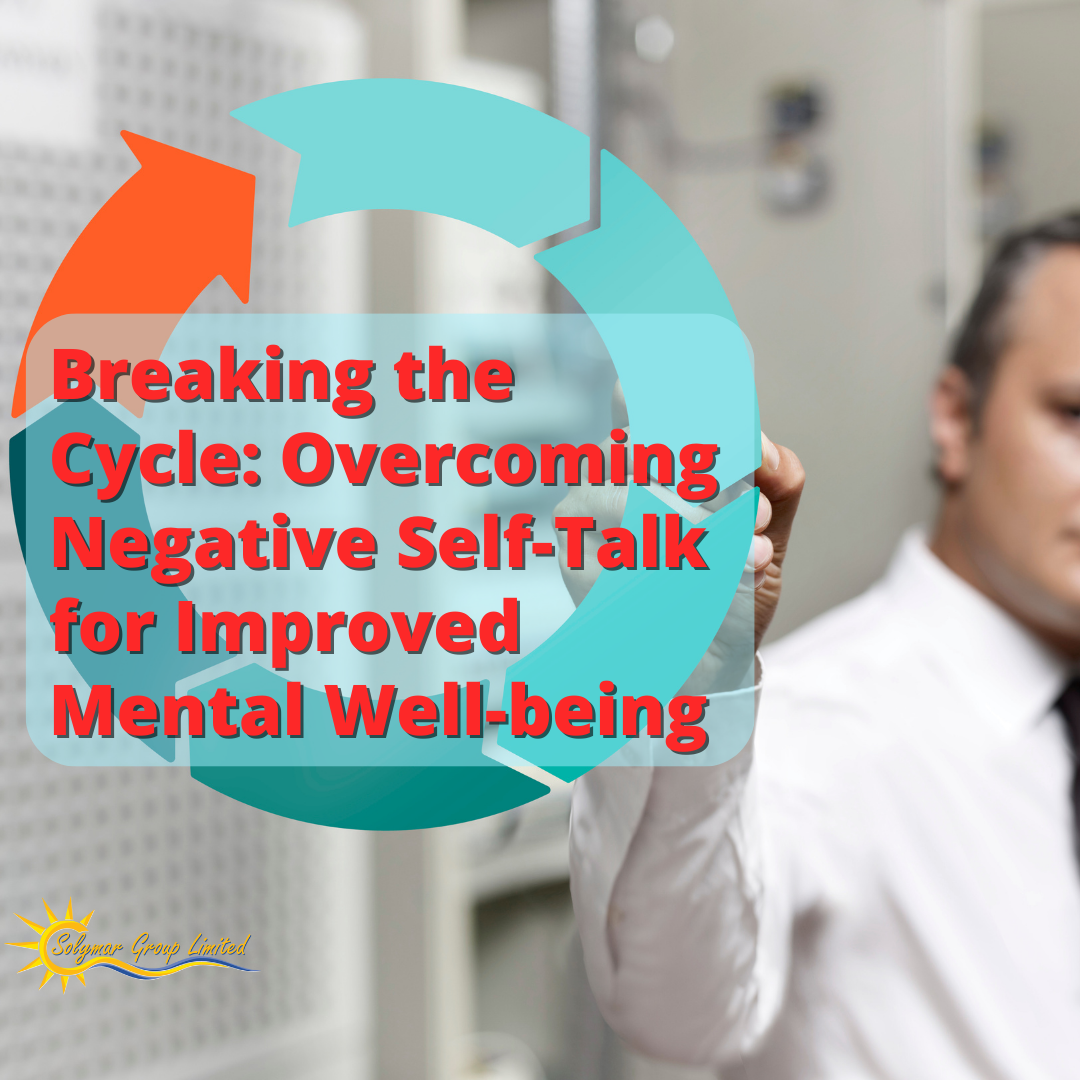 Our inner dialogue plays a significant role in shaping our perception of ourselves and the world around us. Negative self-talk, characterized by self-criticism, self-doubt, and self-deprecation, can have a profound impact on our mental well-being. It creates a harmful cycle that keeps us trapped in negativity and prevents us from reaching our full potential. However, by recognizing and addressing this destructive pattern, we can break free and cultivate a positive mindset that enhances our mental well-being. In this article, we will explore powerful strategies to overcome negative self-talk and pave the way for personal growth and improved mental health.
Our inner dialogue plays a significant role in shaping our perception of ourselves and the world around us. Negative self-talk, characterized by self-criticism, self-doubt, and self-deprecation, can have a profound impact on our mental well-being. It creates a harmful cycle that keeps us trapped in negativity and prevents us from reaching our full potential. However, by recognizing and addressing this destructive pattern, we can break free and cultivate a positive mindset that enhances our mental well-being. In this article, we will explore powerful strategies to overcome negative self-talk and pave the way for personal growth and improved mental health.
Understanding Negative Self-Talk
Negative self-talk is the internal dialogue filled with self-limiting beliefs, unrealistic expectations, and harsh self-judgment. It often stems from past experiences, societal pressures, and comparison with others. This constant stream of negativity can damage our self-esteem, erode our confidence, and lead to anxiety, depression, and other mental health issues. Recognizing the signs of negative self-talk is the first step toward breaking the cycle.
Challenge Your Inner Critic
The key to overcoming negative self-talk lies in challenging and reframing our thoughts. Start by becoming aware of your inner critic and questioning its validity. Ask yourself, "Is this thought based on facts or assumptions?" or "Would I say these things to a friend?" By examining the evidence and considering alternative perspectives, you can gain a more balanced view of yourself and your abilities.
Practice Self-Compassion
Self-compassion involves treating ourselves with kindness, understanding, and acceptance, especially during challenging times. Instead of berating ourselves for mistakes or shortcomings, we can offer self-compassion by acknowledging our humanness and embracing self-forgiveness. Treat yourself as you would treat a close friend or loved one, offering words of encouragement and support.
Cultivate Self-Empowerment
Negative self-talk often stems from feelings of powerlessness and a lack of belief in our abilities. To counteract this, focus on cultivating self-empowerment. Set realistic goals, break them down into smaller achievable steps, and celebrate your progress along the way. By taking control of your actions and choices, you can shift the narrative and build confidence in your capabilities.
Surround Yourself with Positivity
The environment we expose ourselves to can greatly influence our self-talk. Surrounding ourselves with positive and supportive individuals can help counteract negative influences and foster a healthier mindset. Seek out communities or groups that share your values and provide encouragement, empathy, and inspiration. Engage in activities that uplift you, such as practicing gratitude, engaging in hobbies, or connecting with nature.
Challenge Unrealistic Standards
Negative self-talk often stems from comparing ourselves to others and setting unrealistic standards of perfection. Remember that nobody is perfect, and each person's journey is unique. Instead of comparing yourself to others, focus on your progress and personal growth. Celebrate your accomplishments, no matter how small, and practice self-acceptance.
Practice Mindfulness
Mindfulness is the practice of being fully present and aware of our thoughts, emotions, and sensations without judgment. By cultivating mindfulness, we can observe our negative self-talk without getting entangled in it. Mindfulness techniques such as meditation, deep breathing, and body scans can help redirect our focus to the present moment, fostering self-awareness and reducing the impact of negative thoughts.
Seek Professional Help
If negative self-talk persists and significantly impacts your daily life, seeking professional help is essential. A qualified therapist,counselor or mental health coach can provide guidance, support, and evidence-based techniques to overcome negative self-talk. It can help uncover underlying issues, challenge negative beliefs, and develop coping strategies for improved mental well-being.
Conclusion
Breaking free from the cycle of negative self-talk is crucial for our mental well-being and personal growth. By challenging our inner critic, practicing self-compassion and self-empowerment, surrounding ourselves with positivity, challenging unrealistic standards, practicing mindfulness, and seeking professional help when needed, we can transform our self-talk and cultivate a positive mindset. Embracing self-acceptance, celebrating progress, and nurturing self-belief are powerful steps toward improved mental well-being and a fulfilling life. Start today and pave the way for a brighter, more positive future.
Remember, you have the power to break the cycle and create a kinder, more empowering narrative within yourself.
#PositiveMindset #MentalWellbeing #OvercomingNegativity #SelfTalk #SelfEmpowerment #MentalHealthCoaching






